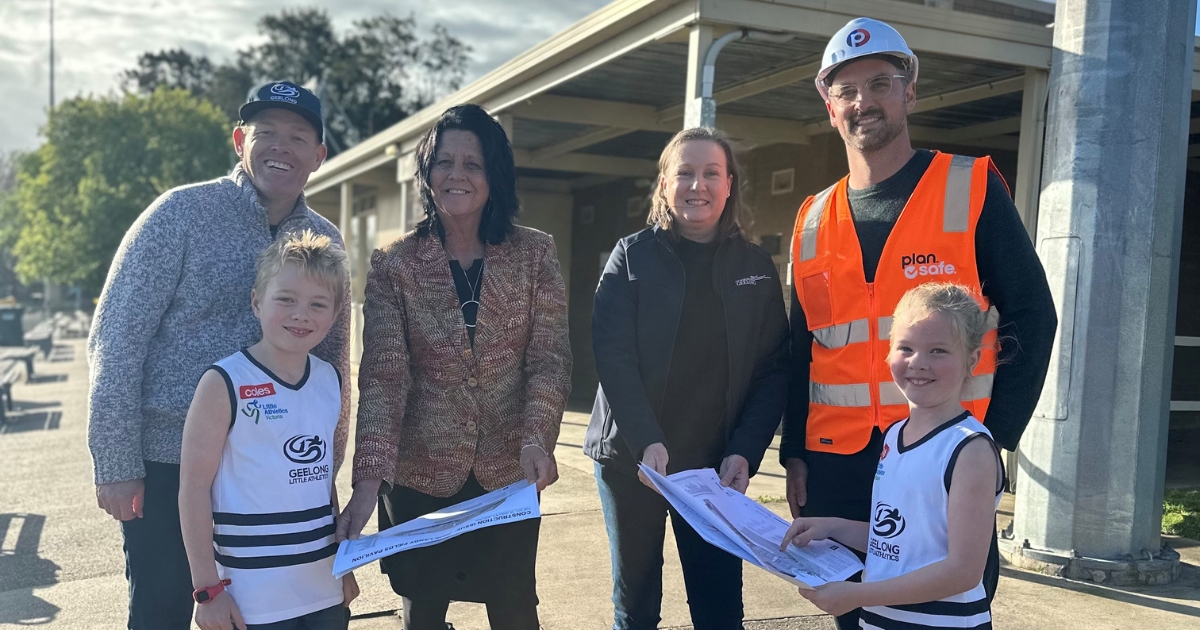Beach kinder helping to build STEM skills

Anglesea Kinder students with teacher Sarah Womersley at Point Roadknight Beach. Photos: NATHAN RIVALLAND
RESEARCH from Deakin University has shown learning by the sea is helping kids grasp early science, technology, engineering and maths (STEM) concepts.
Dr Chris Speldewinde of Deakin’s Centre for Research for Educational Impact recent paper ‘Dipping your toes in the water: early childhood science learning at a beach kindergarten’, determined whether beach kinder sessions were beneficial for young minds.
Preschoolers aged four to five years were encouraged to explore and play creatively with unstructured nature-based materials in coastal settings.
Balls and buckets were left at home, with children instead encouraged to interact with seaweed, shells, sand, rocks, wildlife and water.
Mr Speldewinde said youngsters experienced seasonal changes, learned about nature and environment, food supplies sourced from the sea and the impact of tides on erosion.
Exploring rock pools proved a great way to start early conversations around physics and biology.
Children also grasped engineering fundamentals by experimenting with sandcastles and bridges and learned about gravity and evaporation.
“Our research proves coastal environments can be rich learning contexts for youngsters and I would encourage early childhood educators and parents to dip their toe in the water this summer by turning their next trip to the beach into a learning experience,” Speldewinde said.
“Going to the beach is a great low-cost way for families to spend quality time together.

“We also found blue spaces can act as a calming and enriching place to learn about the environment for children with behavioural, mental, emotional and social issues.”
Approximately 330 four-year-olds are participating in Surf Coast Shire-run beach and bush kinder programs in 2024.
Anglesea Kindergarten spend one day a week at Point Roadknight Beach exploring the outdoors and grasping STEM concepts.
Teacher Sarah Womersley said learning by the beach comes with incredible benefits.
“We absolutely love it, both the children and the teachers.
“Not only does [being at the beach] teach them about STEM, but it helps to build their confidence, emotional wellbeing, confidence and social skills.
“They play with more different children outside, and they talk more too, giving their communication skills a big boost.

“We come out in all types of weather, not just low tide beach days. We just have so much fun doing it.”
Mr Speldewinde said continued guidance will be needed to ensure educators can roll out these programs effectively into the future.
“The eventuality of educators allowing children to be active learners in blue spaces and beach kinder sessions will arm children with the knowledge of how science plays an important role in nature.
“For educators, this paper highlights the value of allowing for effective science teaching and learning to occur in nature-based settings.”
Mr Speldewinde’s full study findings can be found on Springer Nature Link under the Journal of Outdoor and Environmental Education.

















